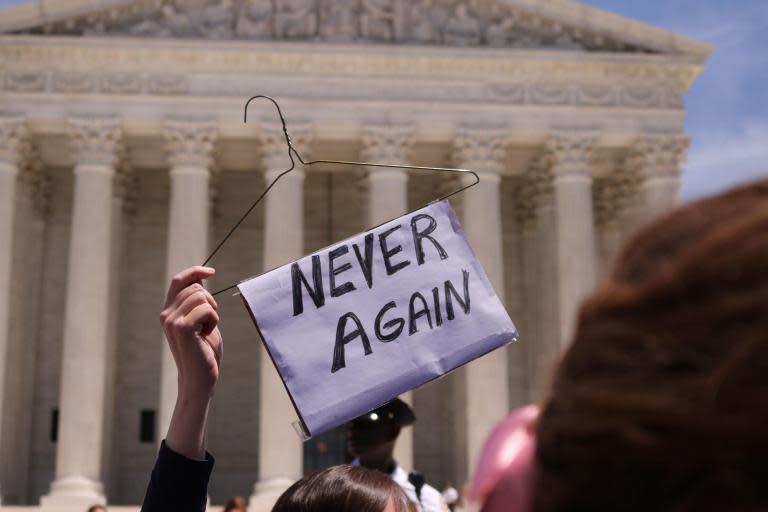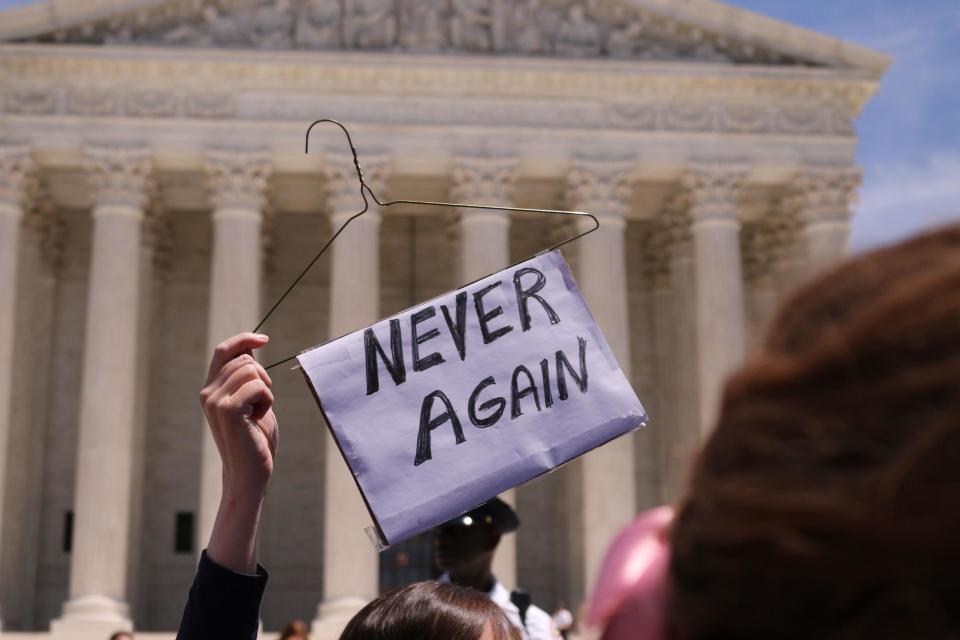Violence and disruption against abortion clinics at highest rates since 1999
Violence and disruption against abortion clinics in the US increased to its highest levels since the 1990s last year, a report by the National Abortion Federation has found.
The increase in violence was attributed, at least in part, to president Donald Trump and his administration’s rhetoric.
The report noted a significant increase in obstruction, vandalism, and trespassing, with 1,135 incidents of trespassing recorded in 2018 - the most since the NAF began tracking the crime in 1999.
There were also 3,038 instances of obstruction, a 78 per cent increase compared to the previous year, and nearly 100,000 instances of picketing.
“Anti-choice individuals and groups have been emboldened by the rhetoric of president Trump, vice president Pence, and other elected officials and we are seeing this play out in more instances of activities meant to intimidate abortion providers and disrupt patient services,” said Dr Katherine Hancock Ragsdale, who serves as interim president and CEO of NAF.
She added: “Demonising health care providers and women who rely on them for abortion care has become one of the go-to tactics for anti-choice politicians. Those lies have consequences and it is not the anti-choice politicians who are facing those consequences; it is those who are denied abortion care and the providers targeted by threats, harassment, and violence who are. It is time for the demonizing of abortion providers and their patients to end.
“Given the political climate and the increase in hate incidents throughout the country, it is more important than ever that law enforcement and prosecutors appropriately respond to anti-abortion criminal activity.”
The study did note a decrease in stalking, burglary, assault, and battery against abortion providers.
It comes during a fresh wave of anti-abortion legislation such as the Alabama abortion ban, which is currently being contested in a lawsuit from the American Civil Liberties Union and Planned Parenthood, and “heartbeat bills” which ban elective abortion after a foetal heartbeat is detectable.
As a foetal heartbeat is first detectable at six weeks - a point where many pregnant people may not even know they are pregnant - these initiatives are seen as a back-door abortion ban and are also being contested in court.
Politicians in support of banning abortion hope these cases will rise to the Supreme Court of the United States and lead to an overturning of Roe V Wade, which set the precedent for elective abortion until the end of the second trimester in the US.


